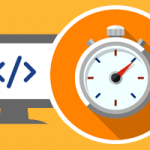According to internetlivestats, as of 2015, there are more than 3.2 billion internet users and 944 million websites and many more being added every second. In this enormous universe of the internet, the importance of having a secure website is critical. Staysecureonline states that more than 1.5 Million people fall prey to cyber crime every day, that breaks down to 18 people per second. Cyber criminals use exceedingly effective computer software programs that automatically detect vulnerabilities in your website. Another growing phenomenon in the hacking community is ‘ransomware’. It’s a malware such as computer viruses, worms, trojan horses that encrypts files on your computer, then demands a ransom to unlock all your data.
So what security measures can you put in place to help protect your website against cyber crime? What possible guidelines could you follow to safeguard your interest and the interest of your customers?
Here is a list of top 7 tips to keep your website safe and ultimately protect your site from cyber attacks:
- Stay Updated – Updating to newer version of scripts as soon as they are released is highly crucial in keeping your website secure. It is suggested to update your site when a new plugin is released or a CMS version is available. Plugin updates are equally important as a full version upgrade.
- Username and Password Management – It is implied that your username and password are the most import elements while installing your CMS software. Password should be strong and should have at least8-10 characters, use a combination of letters in upper case as well as lower case, numbers and various other symbols. Remember that your passwords should be Complex, Long and Unique.
- Conduct regular infrastructure audits – Monitor your infrastructure for network intrusions, duplication attempts and any other suspicious traffic patterns. Identify and block the flow of data into and out of your network.
- Choose the right Hosting Provider – Although price is an important consideration, it should not be the only one. Other factors to consider a hosting provider includes customer reviews, technical support, anti-virus software and Firewall used for cPanel, frequency of backing up data.
- Secure your site with HTTPS and SSL – HTTPS (Hypertext Transfer Protocol Secure) protects the user’s personal information. Customers visiting your website expect a secure online experience while providing any data on the website. Adopting HTTPS in order to protect your customers connection to your website is very crucial. Consider using Secure Sockets Layer (SSL) Certificates with extended validation on all your web pages to protect your customer’s entire website visit. Scan your website daily for malware.
- Regular Back-ups – Regardless of all the measure you may have taken to avoid a cyber attack, there is always a risk of being a victim. Frequently backing up your data and having a recovery plan is crucial. Products like CodeGuard could help restore your website from any point.
- Educate your Employees – Educating your employees is the best defense against cyber crimes. Conduct new employee training as well as regular fresher training courses to impart the importance of data security in the organization. Train employees on how to select strong passwords, social media policies, online fraud, phishing risk an much more.
There are many other things like use of educating your customers, obtaining various digital certificates, and so on. You just can’t afford to take chances with security in today’s aggressive cyber environment. Displaying a trust mark ensures shoppers that your website is verified, trusted and likely free from malware. While these guidelines alone may not assure that your website is never hacked, following them will make you less vulnerable to cyber attacks.
Understanding these issues and being aware of them will prove to be beneficial to you in becoming a better website operator and invaluable to your customers.

